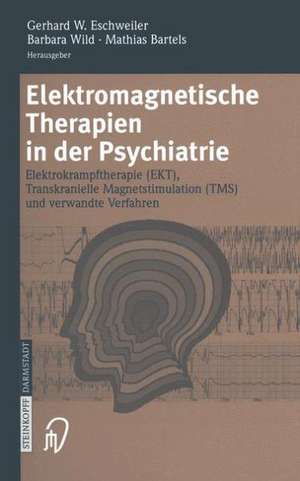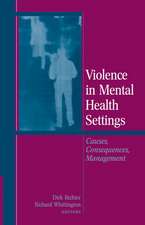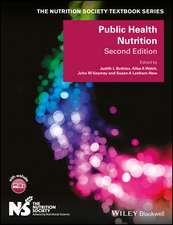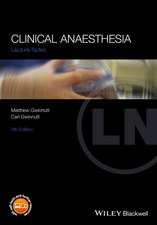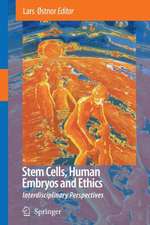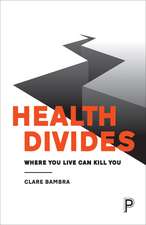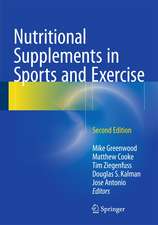Shock, Sepsis, and Organ Failure: Brain Damage Secondary to Hemorrhagic-Traumatic Shock, Sepsis, and Traumatic Brain Injury. Fifth Wiggers Bernard Conference 1996
Editat de Günther Schlag, Heinz Redl, Daniel Traberen Limba Engleză Paperback – 18 ian 2012
| Toate formatele și edițiile | Preț | Express |
|---|---|---|
| Paperback (2) | 721.05 lei 6-8 săpt. | |
| Springer Berlin, Heidelberg – 18 ian 2012 | 721.05 lei 6-8 săpt. | |
| Springer Berlin, Heidelberg – 6 mai 1993 | 722.84 lei 6-8 săpt. |
Preț: 721.05 lei
Preț vechi: 758.99 lei
-5% Nou
Puncte Express: 1082
Preț estimativ în valută:
137.99€ • 149.84$ • 115.91£
137.99€ • 149.84$ • 115.91£
Carte tipărită la comandă
Livrare economică 22 aprilie-06 mai
Preluare comenzi: 021 569.72.76
Specificații
ISBN-13: 9783642645136
ISBN-10: 3642645135
Pagini: 344
Ilustrații: XIII, 324 p. 81 illus.
Dimensiuni: 170 x 242 x 18 mm
Greutate: 0.55 kg
Ediția:Softcover reprint of the original 1st ed. 1997
Editura: Springer Berlin, Heidelberg
Colecția Springer
Locul publicării:Berlin, Heidelberg, Germany
ISBN-10: 3642645135
Pagini: 344
Ilustrații: XIII, 324 p. 81 illus.
Dimensiuni: 170 x 242 x 18 mm
Greutate: 0.55 kg
Ediția:Softcover reprint of the original 1st ed. 1997
Editura: Springer Berlin, Heidelberg
Colecția Springer
Locul publicării:Berlin, Heidelberg, Germany
Public țintă
Professional/practitionerCuprins
From the contents: Brain Damage Secondary to Hemorrhagic-Traumatic Shock.- Brain Damage Secondary to Sepsis.- Brain Damage Secondary to Traumatic Brain Injury.
Textul de pe ultima copertă
New findings involving the brain in traumatic and septic shock and after brain injury are reported in this book, including pathophysiological and pathohistological results. An experimental and clinical approach to treatment is presented together with specific results obtained from the encephalogram and from histopathological study with regard to the immunohistochemistry of toxic lipid peroxidant products. The latest results of clinical and experimental pathophysiology in inflammatory processes after traumatic brain injury and the therapeutic effects of hypertonic fluid therapy are also discussed..
Descriere
Descriere de la o altă ediție sau format:
This book is the result of the 3rd Wiggers Bernard Conference. The Wiggers Bernard Conferences, named after two great physiologists of the past, are biannual gatherings of the leaders in the field of shock. The meetings focus on specific areas of interest, where a lot of new informations is available, but needs to be focused. There are informal presentations during which the seminarian can be intenupted in order to clarify a pat1icular point; formal discussions follow each presentation; these are followed by infOlmal gatherings in which these discussion continue in a very relaxed environment. The 1992 meeting took place in Obermayerhofen, a small but charming castle in the soft green hills of Eastern Styria in the South-Eastern part of Austria. The castle was built in 1130, restored and turned into a hotel in 1977. The renaissance court yard and the generous and exclusive decors make it one of the most beautiful castles in Austria. The frank beauty and hospitality of this area acted as a catalyst to crystalize the thoughts of this interdisciplinary group of scientists as they discussed new findings in the cytokine area.
This book is the result of the 3rd Wiggers Bernard Conference. The Wiggers Bernard Conferences, named after two great physiologists of the past, are biannual gatherings of the leaders in the field of shock. The meetings focus on specific areas of interest, where a lot of new informations is available, but needs to be focused. There are informal presentations during which the seminarian can be intenupted in order to clarify a pat1icular point; formal discussions follow each presentation; these are followed by infOlmal gatherings in which these discussion continue in a very relaxed environment. The 1992 meeting took place in Obermayerhofen, a small but charming castle in the soft green hills of Eastern Styria in the South-Eastern part of Austria. The castle was built in 1130, restored and turned into a hotel in 1977. The renaissance court yard and the generous and exclusive decors make it one of the most beautiful castles in Austria. The frank beauty and hospitality of this area acted as a catalyst to crystalize the thoughts of this interdisciplinary group of scientists as they discussed new findings in the cytokine area.
